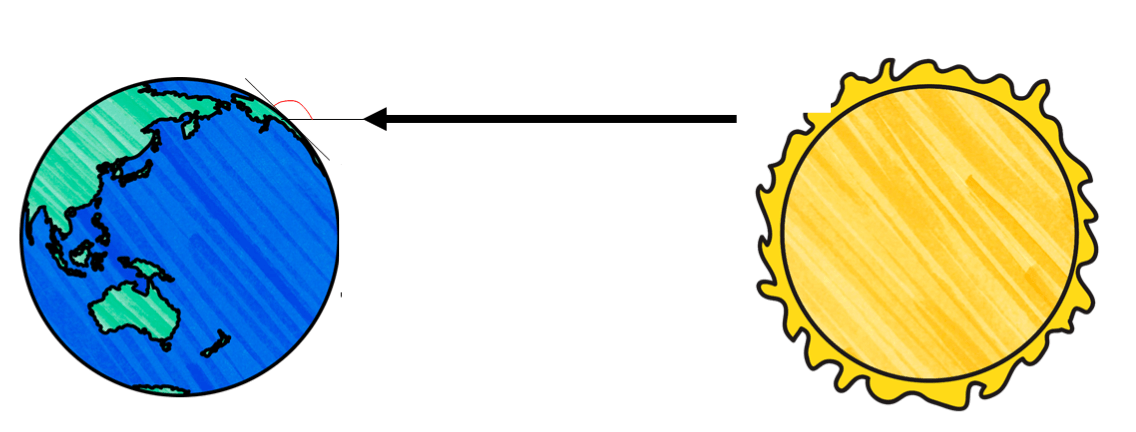 Is this direct or indirect insolation? Would you expect this area of earth to be consistently warm or consistently cold?
Is this direct or indirect insolation? Would you expect this area of earth to be consistently warm or consistently cold?
Indirect, cold
What is the name of the band of surface winds closest to the equator?
Trade winds
What is the definition of insolation?
The amount of incoming solar radiation on the Earth
True or False, the seasons are caused by the distance of the Earth from the sun.
FALSE
The seasons are caused by the tilt of the earth which creates different angles of insolation in different parts of Earth's revolution around the sun.
Altitude affects climates because the higher you are from sea level, the _____________ the climate.
the colder the climate
Energy comes from the sun to earth in this form: it includes ultraviolet, visible and infrared energy
Electromagnetic radiation
Which direction does most of Arizona’s weather come from?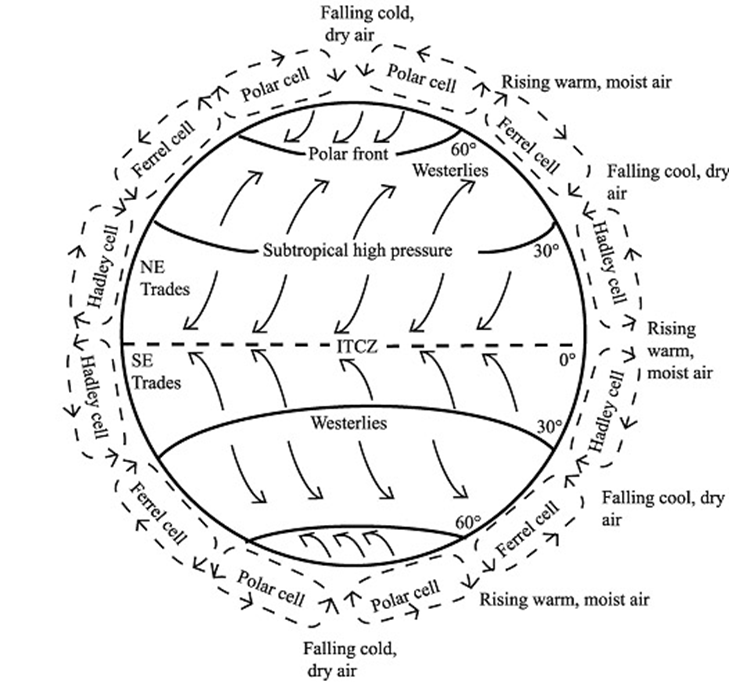
From the west because of the prevailing westerlies
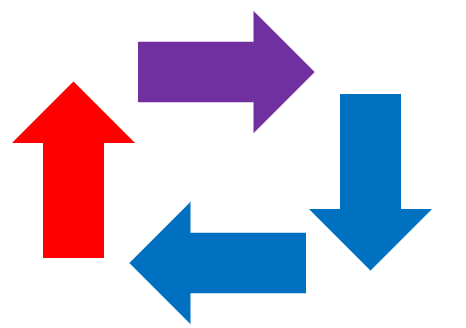 What is this picture describing?
What is this picture describing?
Convection currrent
In summer in Arizona, the Northern Hemisphere tips (toward/away from) the sun
Toward
Falling air from the Hadley and Ferrel cells creates this climate around the globe at approximately 30 degrees latitude
Dry
Explain how solar energy is changed when it is ABSORBED by either earth’s surface or by the atmosphere
Solar energy comes to Earth in the form of electromagnetic radiation that we see as light. When it is absorbed by the surface the light energy is changed into heat energy.
What are the two causes of the Coriolis Effect?
Rotation of the Earth
Uneven heating of the earth
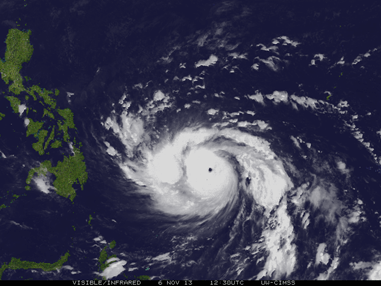
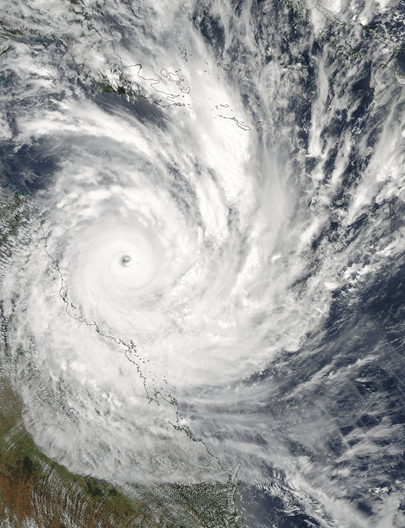 What is different about the hurricanes? Why are they different?
What is different about the hurricanes? Why are they different?
The rotate in different directions. One formed in the northern hemisphere and the other formed in the southern hemisphere.
List the seasons in the correct order--start with Winter
Winter, spring, summer, fall.
Those are your seasons, count them all!!
Cold and dry. Cold water doesn't create very wet air masses, so it creates a less rainy climate.
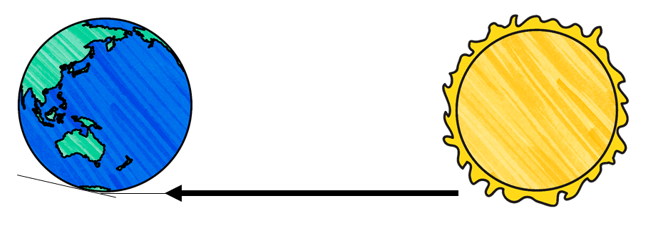 On December 21st the South Pole will receive 24-hours of sunlight, but the average temperature will be about -21 C. Explain why the climate is cold even though the sun never sets.
On December 21st the South Pole will receive 24-hours of sunlight, but the average temperature will be about -21 C. Explain why the climate is cold even though the sun never sets.
Even during the Southern Hemisphere summer when the sun doesn't set, the South Pole still receives only indirect insolation, so it never absorbs much heat. The sun's energy is spread out over a larger surface area, since it strikes at a 30-degree angle or less, resulting in less energy per square meter on the South Pole.
Summarize the movement of air within the Hadley cells. 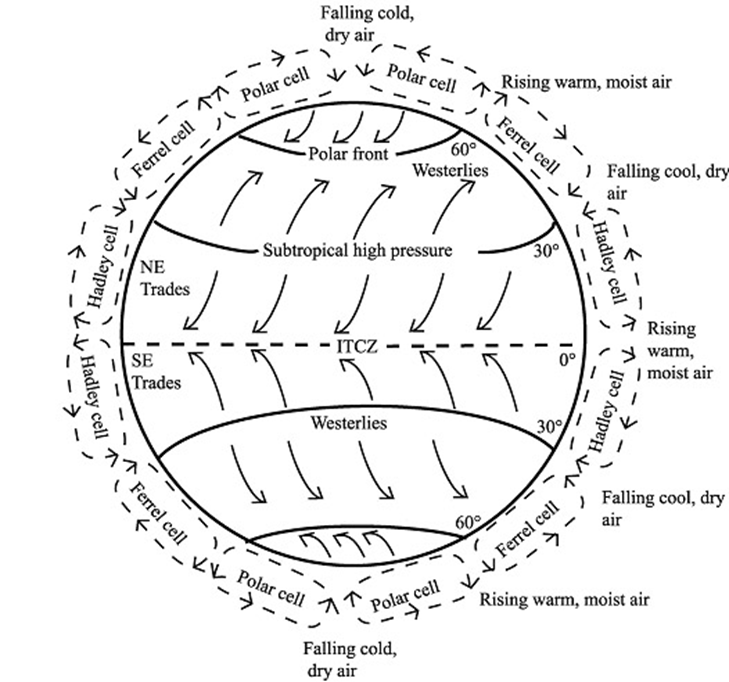
Hot air rises and flows toward the poles. It cools and drops at about 30 degrees north, then flows along the surface of the earth (as winds!) back toward the equator.
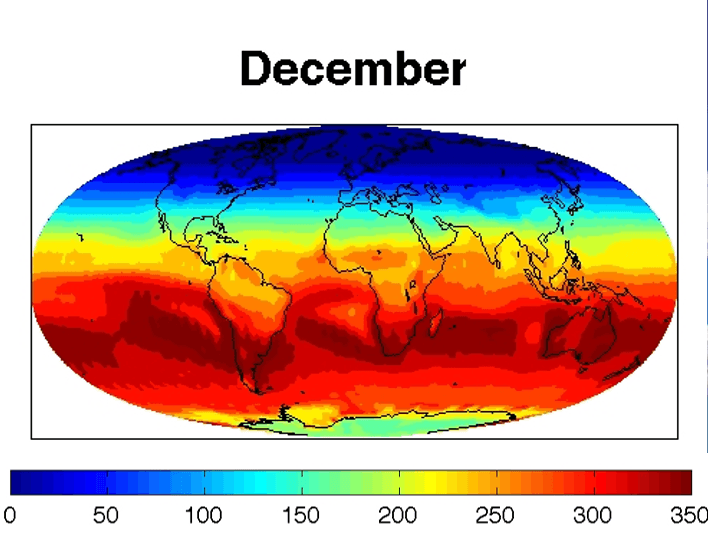 This is an image of the solar insolation in the month of December. Why is the southern hemisphere so hot?
This is an image of the solar insolation in the month of December. Why is the southern hemisphere so hot?
The southern hemisphere receives direct radiation in December making it their summer.
During the autumnal equinox, the northern hemisphere experiences
a. The longest daytime hours
b. The longest nighttime hours
c. 12 hours of daylight and 12 hours of darkness
d. All the leaves fall off the trees on that day
c. 12 hours of daylight and 12 hours of darkness
How does California's topography affect the climate in Arizona?

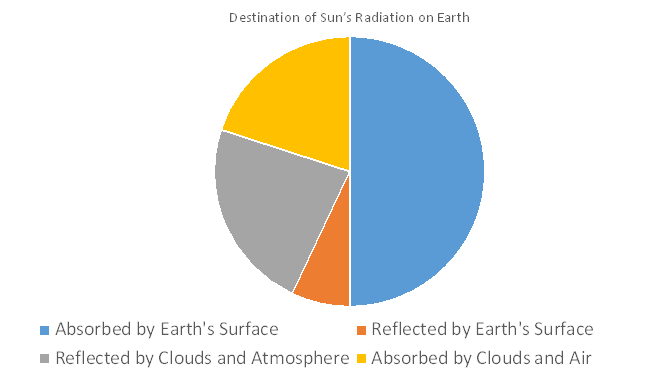 If the amount of dry land on earth were reduced by 50%, how would that affect the amount of solar radiation that is absorbed by Earth’s surface?
If the amount of dry land on earth were reduced by 50%, how would that affect the amount of solar radiation that is absorbed by Earth’s surface?
If we had less dry land, there would be less energy absorbed by Earth’s surface. We would expect the blue section of the pie chart to get smaller. The earth would cool because there would be less energy absorbed by the earth's surface.
Name two careers that require people to truly know about the Coriolis effect.
Pilot, meteorologist
Standing on the edge of the ocean, facing the water, at midnight, what direction would you expect the wind to blow?
The wind should blow on your back because the land has cooled off faster than the water. The water is comparatively warm and so it heats the air above it. The air rises, creating a low pressure at the surface of the water and the cooler air flows in along the surface to take its place.
Draw a model that shows Earth's tilt and position during Winter in the Southern Hemisphere

The Gulf Stream is an ocean current that (warms/cools) the climate of which location?
The gulf stream warms the climate of England/Great Britain/United Kingdom